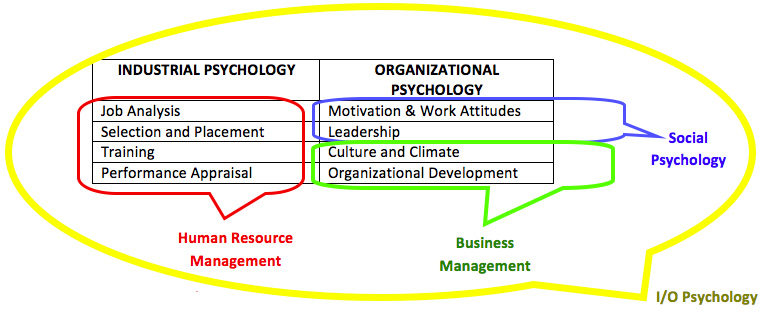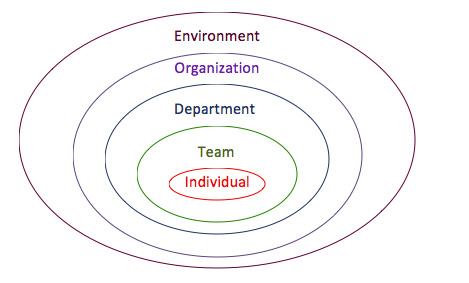Main Content
Lesson 02: Introduction and History of I/O Psychology
Importance of I/O Psychology
The focus of I/O psychology overlaps with other fields but also differs from them. While other disciplines study or apply programs and research similar to those studied and implemented by I/O psychologists, the range of topics studied and actively pursued by I/O psychologists is arguably larger, encompassing issues studied by members of the fields of human resource management (HRM), social psychology, and business management. If we take a look at the figure below, we can see how I/O psychology overlaps with other related disciplines.

Figure 2.3. I/O Psychology's Overlap With Other Disciplines
Although members of HRM, business management, and social psychology may study other topics in addition to those pointed out above, none of them focuses on the entire set of topics we'll be discussing in this course. For more information about these other disciplines, you can check out the websites of the major professional organizations in those fields (listed below under supplemental readings).
I/O psychology considers not only people, but also the context within which those people work. This focus on individuals is unique in an environment where management is primarily concerned with the success of the organization as a whole.

Figure 2.4.
Again, not all individuals in the field of I/O psychology can address these levels all at the same time in either their research or practice, but it is the goal of the field collectively to be informed about the entire picture above.
Furthermore, I/O psychology is grounded in science, focusing on testing and evaluation using quantitative methods. This is not the same as using simple intuition or trying new things until something works. Our methods are studied with scientific precision and backed by theory and statistics. We'll learn more about our methods of study in our next lesson.
Finally, there are many reasons for organizations to be interested now and in the future in social and psychological processes in order to better understand how their organizations and the people in them work and how to make their organizations more productive and competitive places. For example, companies are beginning to compete on a global scale more than ever before. Therefore, it's important to know how to motivate workers for ultimate productivity and efficiency. Another example is that many companies have an increasingly diverse workforce. Information about how to best manage the social and psychological complexity of working with members from diverse backgrounds is key to the success of these organizations.
